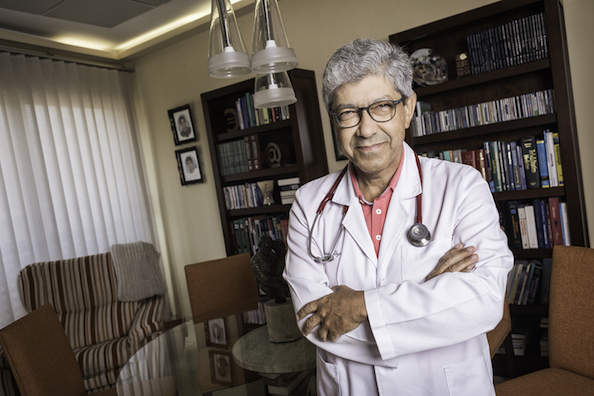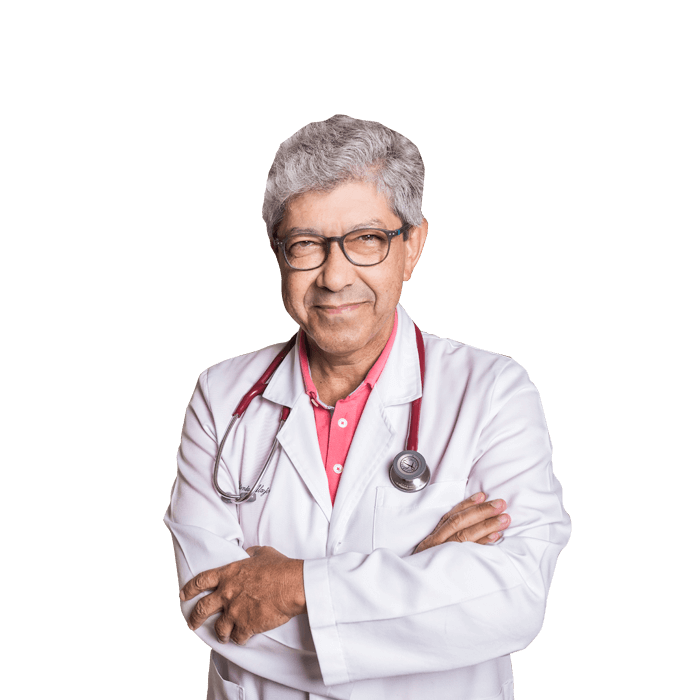
Neurology studies everything related to the structure, function and development of the nervous system, particularly diseases that affect the central, peripheral, autonomic and muscular nervous systems.
What are neurological diseases?
Neurological diseases are those which affect:
- Central nervous system: brain and spinal cord
- Peripheral nervous system: muscles and nerves

The most frequent neurological diseases
Neurological diseases may affect many capacities (memory, movement, speech …) that have consequences in the daily activities of the person who suffers it and generate a grade of dependence.
Amongst the most frequent neurological diseases there are dementias and cognitive disorders, such as Alzheimer’s.
Also other common diseases are: Parkinson’s disease migraine, traumatic brain injuries or cerebrovascular diseases (transient ischemic attack, stroke, cerebral haemorrhage).
There are other inflammatory, degenerative and neuromuscular diseases that can be included such as multiple sclerosis, dystonia or neuropathies, between others.

Parkinson's disease is suffered by 160,000 to 300,000 people in Spain
The source of Parkinson’s disease is still unknown and causes the progressive death of neurons located in the deep areas of the brain. Although tremor is the symptom that is mainly associated with this disease, 25% of patients who have this disease do not suffer them.
Other important symptoms of this disease are the lack of facial expression, the slowness of movements, loss of balance, sialorrhea or alteration and instability when walking.
Furthermore, this disease causes cognitive deterioration and dementia. In fact, between 60-80% of patients with Parkinson’s have an associated dementia.
Alzheimer's, amongst the ten leading causes of death in Spain
It is the most common form of dementia and there is no cure for it. It is a disease that affects memory, thinking, orientation, comprehension, calculation and language.
As the dementia develops, the person who suffers it will have a decrease in cognitive functions, so the person will lose his independence.
One of the first symptoms of Alzheimer’s, even before memory loss is disorientation.
What is neurological physiotherapy for?
Physiotherapy is used in neurology to ease the symptoms of the diseases that patients present, whether children or adults. With these techniques the perception of pain is improved and the function is restored after an affectation.
It is useful in patients with pathologies such as cerebral palsy, Parkinson’s disease, amyotrophic lateral sclerosis…
The advantages of choosing the Canary Islands as a health destination in the neurological area
Our neurological patients will benefit from these advantages by choosing Tenerife as their healthcare destination:
- Our associated centre follows a ‘Comprehensive neurological care program’, that goes from the study and treatment of the symptoms, causes and treatments of the disease, to family, social, psychological and cognitive involvement.
- Qualified professionals that offer the highest quality services in modern and easily accessible facilities
- Patient care is totally personalized and focused on recovery, physically, mentally and functionally.

Neurological Treatments in This
Prevention, Diagnosis or diagnostic confirmation (second opinions) and treatments of:
- Cerebrovascular diseases
- Neurodegenerative diseases
Neuropathic pain
- Use of ultrasound for the non-invasive diagnosis of diseases of the Central Nervous System (Brain and Medulla) and the Peripheral Nervous System (Neuropathies and Muscular Diseases)
- Pioneers in the Design and application of the Comprehensive Personalized Neurological Rehabilitation Program (PRNIP) to improve the quality of life of patients and their families
- Neuropsychology and psychotherapy
- Neurological Speech Therapy
- Neurological physiotherapy.
- Clinical analyses, neuro-genetic tests and metabolic studies
- Neurophysiological techniques

CENTRO NEUROLÓGICO ALAYÓN
Fellowship in Neurosonology and Cerebrovascular Diseases at Wake Forest University (NC, USA). Certificate in Neurosonology by the American Society Neuroimaging Board.
Dr. Alayón directs the Antonio Alayón Neurological Centre, which focuses on the complete care of patients with chronic brain diseases and other neurological processes. Brain diseases and injuries (traumatic brain injuries, ischemic strokes, cerebral haemorrhages, tumours, encephalitis, neurodegenerative diseases – Alzheimer’s, Parkinson’s – Multiple sclerosis, epilepsy, etc.) have physical, psychological (cognitive, behavioural and emotional) and functional consequences that have dramatic repercussions at a personal, familiar, social and work level. The available evidence has shown that the interdisciplinary approach of these diseases or injuries is not only the most reasonable way of treatment, but also the most effective and efficient.
Dr. Antonio Alayón
Antonio Alayón is a Doctor of Medicine and Surgery and a specialist in Neurology. He got a postgraduate in Electromyography at the Autonomous University of Barcelona (UAB).
Dr. Antonio Alayón
Neurologist and director of the Alayón Neurological Center













